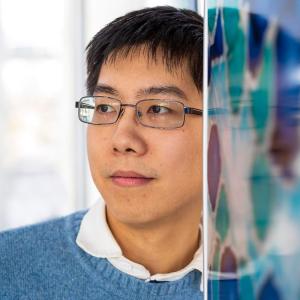Zhigang Jiang

Zhigang Jiang
Professor, School of Physics
Initiative Lead, Georgia Tech Quantum Alliance
Zhigang Jiang received his B.S. in physics in 1999 from Beijing University and his Ph.D. in 2005 from Northwestern University. He was also a postdoctoral research associate at Columbia University jointly with Princeton University and NHMFL from 2005 till 2008. Jiang is interested in the quantum transport and infrared optical properties of low dimensional condensed matter systems. The current ongoing projects include: (1) infrared spectroscopy study of graphene and topological insulators, (2) spin transport in graphene devices, and (3) Andreev reflection spectroscopy of candidate topological superconductors.
zhigang.jiang@physics.gatech.edu
404.385.3906
Office Location:
Boggs B-18
- Electronic Materials
- Energy Utilization and Conservation
- Nanomaterials
- Optics & Photonics
quantum materials; nanoelectronics; Graphene; Epitaxial Growth
IRI Connections:









